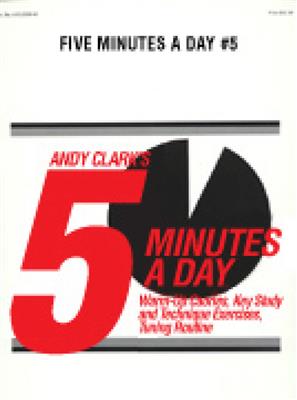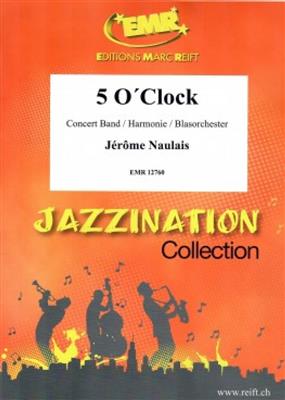-
 £35.50
£35.505 Minutes a Day #4 - Andy Clark
The fourth in Andy Clark's extremely successful series of time saving warm-ups. Contains a Chorale Warm-up, an Interval Study and Technique Exercise, in addition to a short Tuning Routine to get your rehearsal off to a great start. An excellent way to save precious rehearsal time and improve your band at the same time. A valuable investment for the future of your band program.
Estimated dispatch 7-14 working days
-
 £54.99
£54.995 Minutes a Day #5 - Andy Clark
The fifth of Andy Clark's extremely successful time saving warm-ups. Contains a Chorale Warm-up, a Key Study and Technique Exercise, in addition to a short Tuning Routine to get your rehearsal off to a great start. An excellent way to save precious rehearsal time and improve your band at the same time.
Estimated dispatch 7-14 working days
-
 £92.00
£92.005 O'Clock - Jérôme Naulais
Estimated dispatch 7-14 working days
-
£93.90
5 Pachelbel Chorals
Estimated dispatch 7-14 working days
-
£35.60
5 Sint Nicolaas liedjes
Estimated dispatch 7-14 working days
-
£146.30
5. Songe d'une Nuit du Sabbat - Hector Berlioz
Estimated dispatch 7-14 working days
-
 £89.99
£89.99 -
£33.95
57/7 Dash - Melinda Wagner
Estimated dispatch 7-14 working days
-
 £38.20
£38.20 -
£60.99
6 Abdankungschoraele - Robert Favre
Estimated dispatch 7-14 working days
Searching for Brass Band Music? Visit the Brass Band Music Shop
